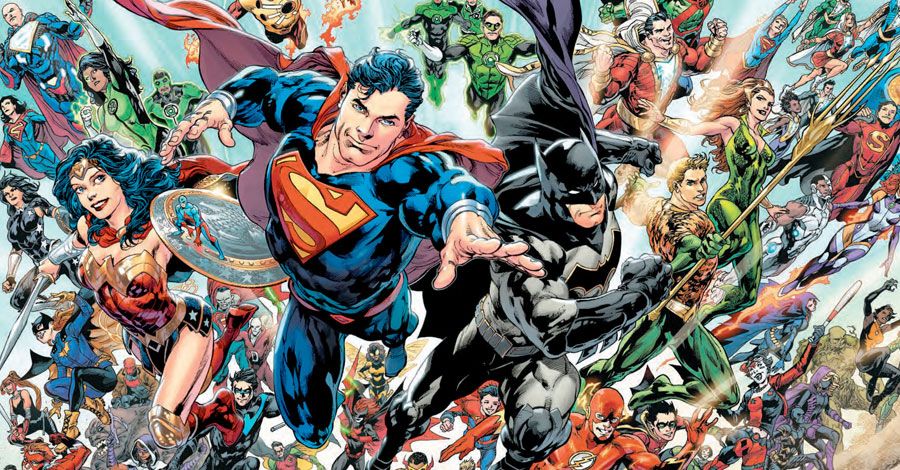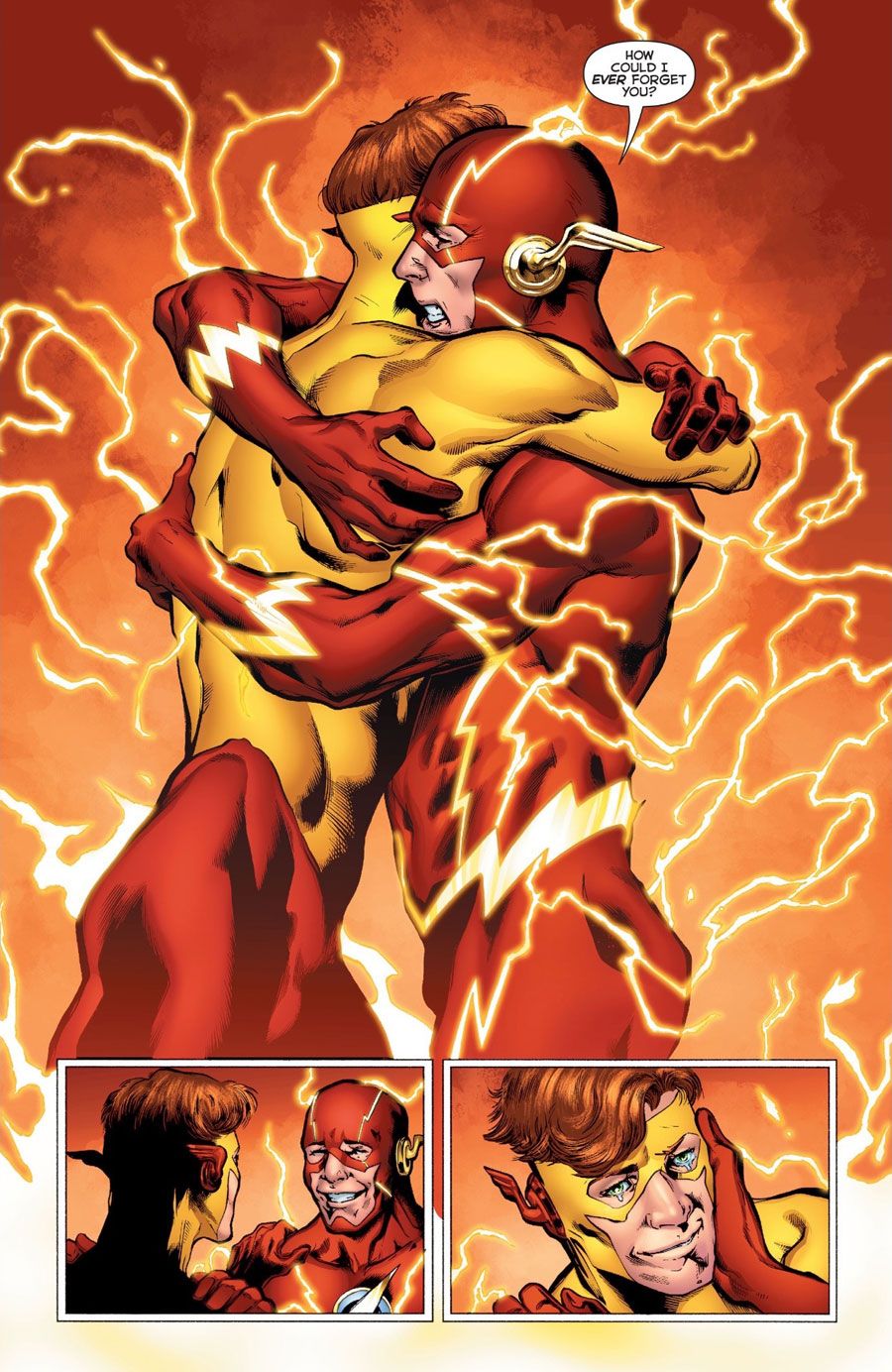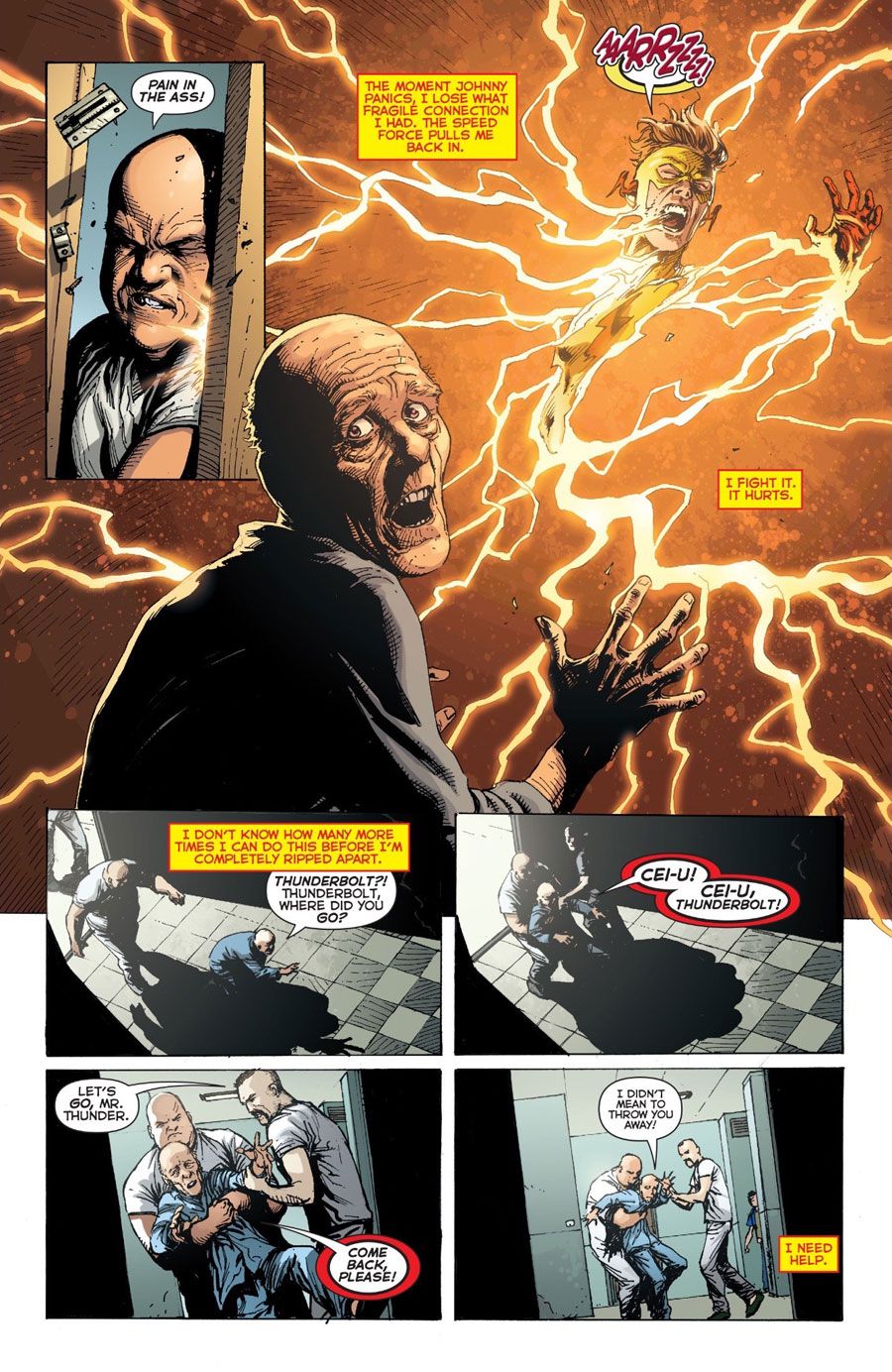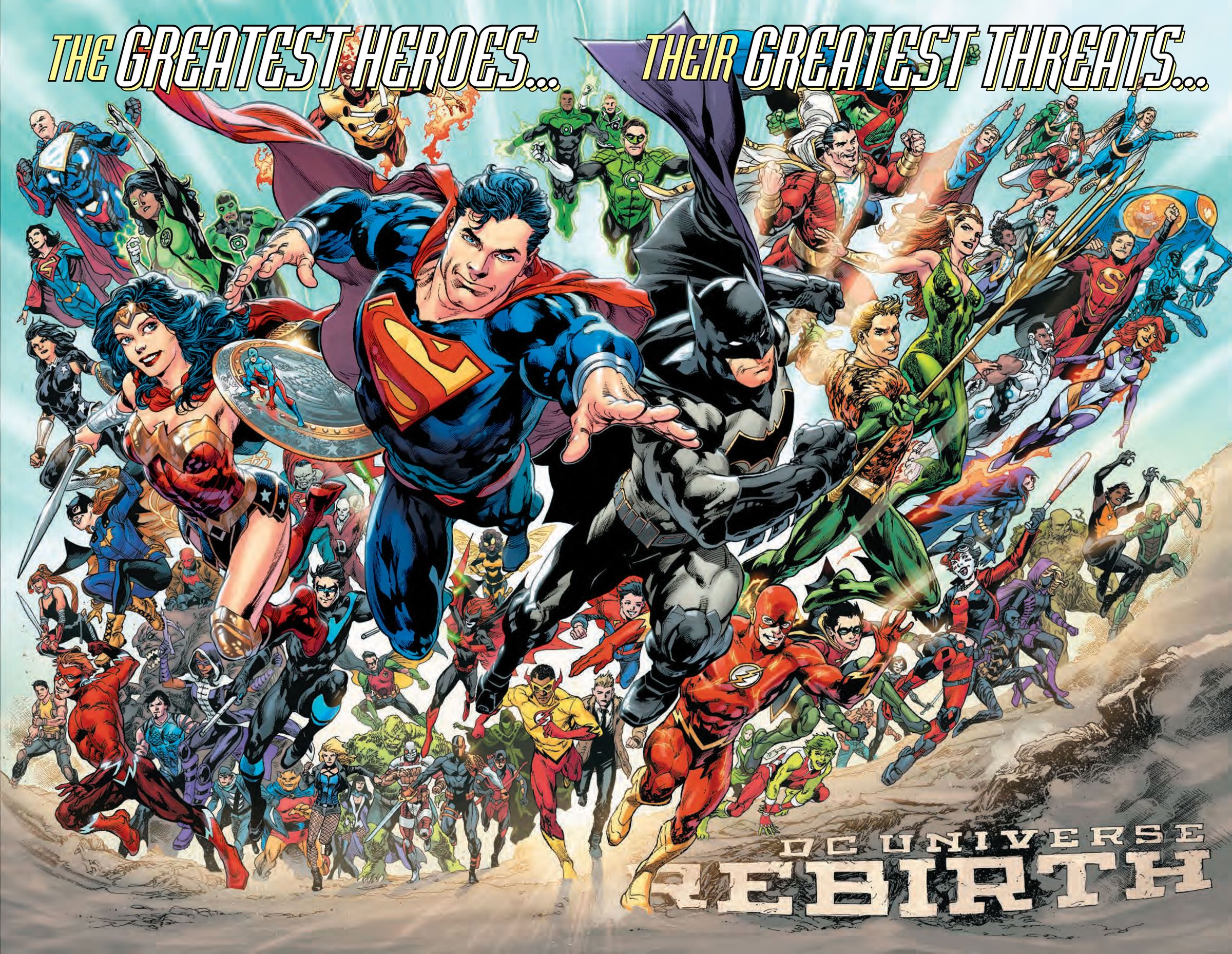Out with the new, in with the old? That seems to be the motto for the Geoff Johns-written "DC Universe: Rebirth" #1 -- sort of. The issue, illustrated by Gary Frank, Ethan Van Sciver, Ivan Reis and Phil Jimenez, restored a number of elements from DC Comics' history, things the New 52 relaunch seemed to erase from continuity, and all without overhauling the current, established status quo.
RELATED: First Look at DC Rebirth Designs For Bizarro, Red Robin, Batman Beyond & More
Considering the magnitude of the events of this not-quite-a-reboot, longtime DC Comics fan Jeffrey Renaud and newcomer Meagan Damore -- who came to the DCU with the New 52 reboot -- discussed the revelations, returns and twists in the continuity re-shaping on-shot. The pair discussed what it means for the publisher, what other changes or revelations they'd like to see in its wake, and what it means to DC readers old and new alike.
Meagan Damore:It'd probably be best to kick this off by discussing the guy who ties it altogether: Wally West. I actually don't have a lot of experience with the character, at least outside of the "Justice League" animated cartoon from the early 2000s. I picked up DC with the New 52, so I've read a bit about Barry, but not as much about Wally. As a longtime DC Comics fan, what was it like to see him back in action?
Jeffrey Renaud:It's kind of like Robin -- depending on your age or when you were introduced to comics, everyone has a Robin -- be it Dick, Tim, Jason, Stephanie or Damian. If you grew up reading comics in the early 1990s, Wally West is likely your Flash, and not Barry Allen. Mark Waid and a bevy of gifted artists -- including Salvador Larroca, Carlos Pacheco, Oscar Jimenez and Greg LaRocque -- delivered some epic stories at that time featuring Wally as the Fastest Man Alive, highlighted by a killer year-long run with Mike Wieringo in 1993-94.

Wally is the opposite of Barry: he plays, and he plays hard, but he's also living his dream. He always wanted to be the Flash, and then, by a twist of fate (and a bolt of lighting), he became the Flash.


Creators talk all the time about a character or characters being a gateway into the story, a characterrepresentingthe reader. We all wanted super-speed or super-strength as a kid growing up reading comics, and that's what happened to Wally. He's not from another planet, and his parents weren't gunned down in a dark alley. He's one of us. 

Meagan:I've got to say, I thought it was an interesting segue between worlds. It married the two continuities pretty neatly; there were a few references in here that I wasn't quite familiar with (I'll talk about those, too, in a bit), but it managed to pique my interest in them. I really felt for the character, despite my peripheral knowledge.
Jeffrey:Totally. Wally and Barry have a very special connection. As I was reading the issue and he was bouncing around from Batman to Johnny Thunder toLinda Park, I kept thinking, "Just find Barry. Find Barry."
Meagan:Yeah, I was surprised to see him approach Barry last, even after Linda! It made a lot of sense from a storytelling perspective, though; that was a nice crescendo to the build in tensions.
Jeffrey:Agreed.But sadly, DC Comics is very non-Sith like: "Always two there are; no more, no less. A master and an apprentice." If Wally is back -- and, I mean, he is really back -- I fear for how long Barry Allen will remain front and center as the Flash.
Meagan:I didn't get that impression! Not with the inclusion of New 52's Wally, anyway -- who is apparently pre-"Flashpoint" Wally's cousin?
Jeffrey:True enough, but it does get a tad confusing for casual readers -- though, apparently, DC Comics isn't looking for casual readers anymore.
"The Flash" TV series is very popular right now, thanks in large part to the strength of Grant Gustin as Barry Allen. I love Wally, and I actually really returned to comics after a break with Bart Allen as the Flash, so I'm cool with multiple Flashes. I just don't know if I am the norm or the outlier.
Meagan:Wally was always my favorite character in Cartoon Network's "Justice League," so I'm pretty pumped to see him here! Though I'm a little worried that it might be at the expense of New 52's Wally, who never really got a chance to shine. If pre-"Flashpoint" Wally gets an opportunity to mentor Wally the Younger, that would be a golden opportunity, but I didn't get that impression.(Lord, that's confusing!)
Jeffrey:See, there's the problem. DC created a new Wally that really hasn't been explored yet, and now we have Classic Wally running around. And Barry! Again, I love the Speed Force and the concept of super-speed as a superpower, but it becomes a little less cool if half-a-dozen heroes share the strength.
Meagan:Okay, I'm going to switch tracks a little bit (as much as I see your point and agree!). There were two scenes completely out of my league here -- Thunderbolt, and a member of the Legion of Superheroes (which is a team I know Geoff Johns loves). Why should I, as a relatively new reader, be excited about these guys? Do you see a lot of opportunity for good storytelling with them moving forward?
Jeffrey:I know this will get me in trouble with all of the Marvel super-fans like Dan Slott, who is killing it in outer space right now with Mike Allred on "Silver Surfer," but I always think of the Marvel U as a few streets in downtown New York, and the DCU as representing all of space and time. When you tell stories with the JSA and the Legion, you get to tap the past and future of the DCU and it makes it a very safe place for readers of multiple generations.
I know I just spoke out(ish) against multiple Flashes, but it works in the DCU because -- like "Doctor Who" -- writers and artists have told storieswith multiple Earths, multiple timelines and multiple versions of multiple characters for the past 75 years. It makes sense that there is a villain known as Multiplex. Thanks, Gerry Conway and Al Milgrom!

Meagan:Speaking of multiple Earths and timelines, let's talk Doctor Manhattan. That was huge! (For reference, I have, of course read, "Watchmen.") If you'll pardon my French, my gut reaction was, "Holy shit!" What was your immediate, no-holds-barred response when you saw that?
Jeffrey:Honestly, I thought it was cool. Really cool. Why? Because it's something new. I understand completely that comic book readers get upset about certain storylines and concepts. For all of the readers upset about Captain America being a Hydra agent [in Nick Spencer and Jesus Saiz's "Captain America: Steve Rogers" #1], I get it -- but come on, it's comics. We know it will all make sense in the end. Alan Moore and Dave Gibbons are legends, and "Watchmen" will forever be remembered as one of the most important stories in the history of comics. Say what you will about what it represented or exposed about modern comic book storytelling, but it was mostly popular because we hadn't seen it before. We definitely haven't seen Ozymandias and Dr. Manhattan messing around with the DCU before.And the possibility of seeing Comedian as The Joker... Come on, that's bloody brilliant.
Meagan:Yeah, it felt like a shot in the arm to me. I've grown up surrounded by comic book media, and I've got to say this is unlike anything I've seen before -- it's new, and startling, and it has a lot of potential to be something great -- especially where there's a lot of discussion around "grimdark" superheroes. I believe Johns said Manhattan would be an "antagonist," not a "villain," which is also intriguing.
Jeffrey:I agree but, again, "grimdark" superheroes don't bother me. I recently interviewed Joshua Williamson about his upcoming run on "The Flash" and the first thing I wanted to ask him about was when he was going to do a Gorilla Grodd story, which has been done one million times.Why? Because I grew up watching "Super Friends" and Gorilla Grodd was awesome. But it's been done and done and done again.
Meagan:I definitely think there are some characters better suited to "grimdark." Batman, for instance, works very well in that kind of circumstance. However, one of the things that turned me off at the beginning of the New 52 was that kind of uniform approach. I'm glad to see more lightness being added to the DC Universe, but I don't think it should be a one-size-fits-all scenario.
Jeffrey: Is Zack Snyder's version of Batman and Superman my Batman and Superman? No. Too grim. Too dark. He tried something new, and it was widely panned. Why? Because it was different than what we are used to seeing. Did I love it? No. But I preferred getting a new story with new interpretations of these classic characters than I did getting a frame-by-frame retelling of "All Star Superman" or "Long Halloween," because I've already read those stories. I want something new.
Meagan:That's a great point -- and I think that circles back to the idea of Doctor Manhattan, in this context, being something new. That's what makes it feel so effective. Now, it could -- of course -- go anywhere, and I may not love how it falls out, but I feel like I'll remember that moment, years down the line. What did you think of the issue overall?
Jeffrey:There is not a single writer or artist in the world of comics I trust more than Geoff Johns. If he's driving "DC Universe: Rebirth" -- and believe me, he is -- I'm on board.Geoff is the master of big, big stories, and he loves these characters more than anyone else. If you are worried about Doctor Manhattan, Ozymandias and the Comedian re-writing the DC Universe, so is he. If you're worried about what Wally's return means for Barry, so is he. We haven't even discussed that he and Peter Tomasi also killed the New 52 Superman as a final goodbye. And again, if that upset you, it upset Geoff, too. Above all, "DC Universe: Rebirth" grabbed my attention. And that's a good thing.
"DC Universe: Rebirth" #1 is now on sale.




